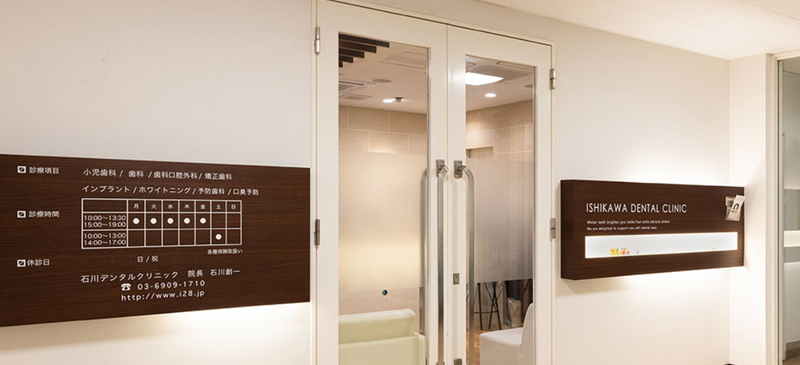Feb 18, 2024
Gallery - Navigating the Dental Experience in Japan

Stepping into a dentist's office in a foreign country can be a daunting experience, especially if you're unsure of what to expect. Japan, with its advanced healthcare system and cultural nuances, presents its own unique set of considerations when it comes to dental care. Whether you're a long-term resident or a traveler in need of emergency treatment, understanding the ins and outs of visiting a dentist in Japan can alleviate any apprehensions and ensure a smooth experience. Step 1: Preparing for Your Appointment Researching Dentists: Utilize search engines and online directories to locate English-speaking dentists in Tokyo. Facebook groups like Tokyo Expat Network (TEN) or other forums often feature recommendations and reviews from expats. Personally, I have been a patient at Isikawa Dental Clinic for years, and I am satisfied with their dental cleaning services. While the dentists are fluent in English, some dental hygienists may have partial proficiency in the language.Insurance Coverage: The national health insurance scheme provides coverage for 70% of dental fees, which aligns with coverage offered at other healthcare facilities. During your initial visit, anticipate paying approximately ¥3,500 for a check-up or cleaning session. Subsequent treatments or follow-up procedures are typically priced at around half of this initial amount or even less. Making an Appointment: First, reach out to the chosen clinic via phone or email to inquire about appointment availability. Ensure to specify your language preference and inquire about English-speaking staff. Then, be prepared to provide personal details such as your name, contact information, and any specific dental concerns or treatments needed. Last, work with the clinic staff to find a suitable date and time for your appointment. Be flexible, as popular clinics may have limited availability. Step 2: The Dental Visit Experience Arrival and Check-in: When you enter the clinic, approach the reception desk where you will be greeted by clinic staff. They will assist you with the check-in process and any initial inquiries. If it's your first visit to the clinic, you'll need to complete a registration form. This form typically includes personal information such as your name, address, contact details, and medical history. If you have health insurance coverage, present your insurance card. They will verify your coverage and process any necessary paperwork. After completing the check-in process, you'll be directed to the waiting area. Take a seat until your name is called or until it's time for your appointment. Consultation and Examination: During the consultation, you'll discuss your dental concerns, medical history, and any specific issues you're experiencing. The dentist will examine your teeth and gums, possibly using X-rays to assess your oral health. If you're scheduled for a dental cleaning, the hygienist will begin by removing plaque and tartar buildup from your teeth using specialized tools. They will then polish your teeth to remove surface stains and make them smoother. Before you leave, the dentist or hygienist will provide you with personalized oral hygiene instructions. Step 3: Cultural Considerations and Etiquette Punctuality: Arriving on time for appointments is highly valued in Japanese culture, including when visiting the dentist. Punctuality is considered a sign of respect and professionalism, reflecting one's commitment to the scheduled appointment and consideration for others' time. It helps maintain efficiency and ensures patients receive adequate treatment time without delays. Payment and Billing: Payment methods typically include cash, and credit/debit cards. It's essential to inquire about accepted payment methods before your appointment and be prepared to settle the bill accordingly. Some clinics may require payment immediately after treatment, while others may offer the option to pay at a later date or online. Visiting the dentist in Japan may seem intimidating at first, but with the right preparation and knowledge, it can be a straightforward and even rewarding experience. By familiarizing yourself with the process, cultural considerations, and available resources, you can approach dental care in Japan with confidence and ensure your oral health needs are met effectively.
